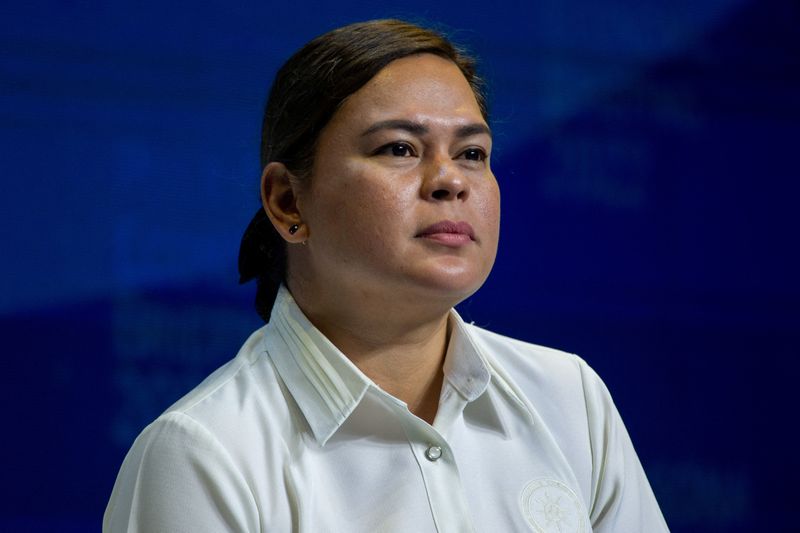Philippines VP says peace talks with communist rebels a pact ‘with the devil’
2023.12.04 08:40

© Reuters. FILE PHOTO: Philippine Vice President and Education Secretary Sara Duterte attends an economic briefing following President Ferdinand Marcos Jr’s first State of the Nation Address, in Pasay City, Metro Manila, Philippines, July 26, 2022. REUTERS/Lisa Mari
MANILA (Reuters) – Philippines Vice President Sara Duterte on Monday opposed a government decision to restart peace negotiations with communist rebels, describing the move as an “agreement with the devil” in a rare rebuke to President Ferdinand Marcos Jr.
The government and the communist rebels agreed last week to restart talks after a six-year hiatus, aiming to end half a century of conflict that has killed more than 40,000 people.
Duterte, the daughter of former President Rodrigo Duterte who terminated the talks in 2017, warned the rebels could take advantage of peace negotiations and were “insincere” in achieving a settlement.
She has urged the president to reconsider and review the policy which includes granting amnesty to members of the Communist Party of the Philippines, its political arm, the National Democratic Front of the Philippines (NDFP) and its armed wing, the New People’s Army (NPA).
“Mr. President, the government’s statement with the NDFP in Oslo was an agreement with the devil,” Duterte said in an address streamed on her Facebook (NASDAQ:) page.
“They will use this peace negotiations to betray government and deceive the public.”
Duterte, who is also education secretary, was named vice-chair of an anti-communist task force created by the elder Duterte which Marcos now heads.
As vice president, she has limited policymaking powers under the Philippine constitution except to succeed the president if he dies or becomes too sick to govern.
Marcos and Duterte ran under the “Uniteam” ticket in the 2022 national election, becoming the Philippines’ first top leaders to win by majority since democracy was restored in 1986.
Last month, Marcos said the government was studying a possible return to the International Criminal Court four years after the Duterte-led government withdrew from the tribunal. An analyst said at the time Marcos was veering away from his predecessor’s policies and breaking away from their alliance.
The presidential communications office did not immediately respond to a request for comment on Duterte’s remarks.








